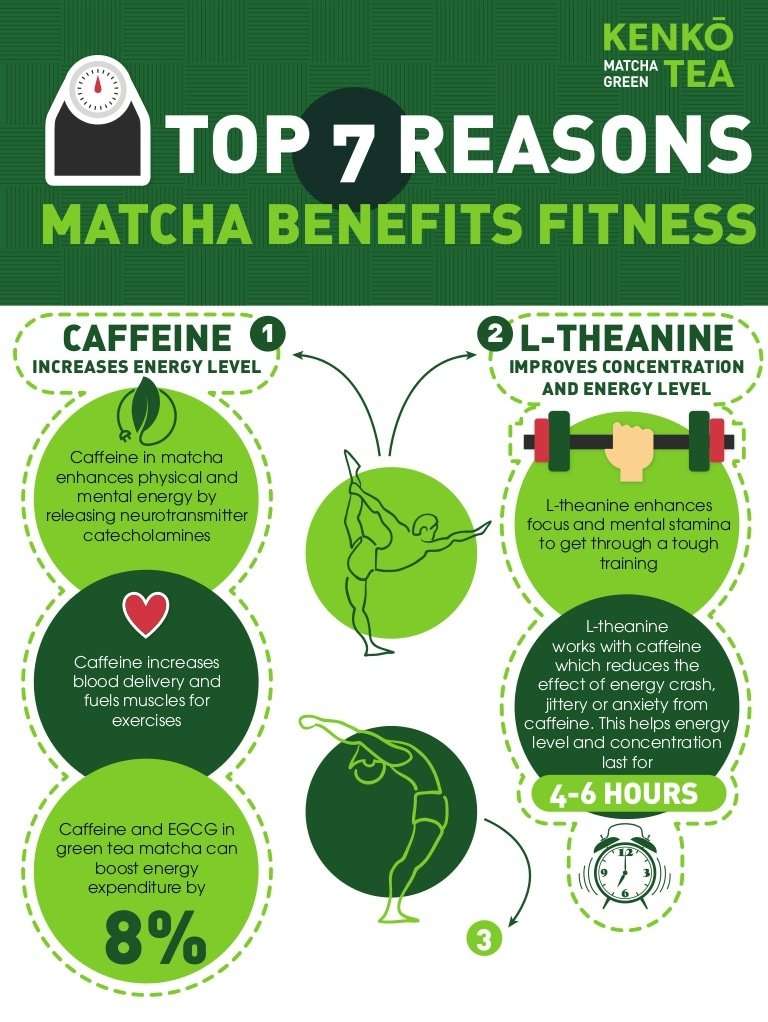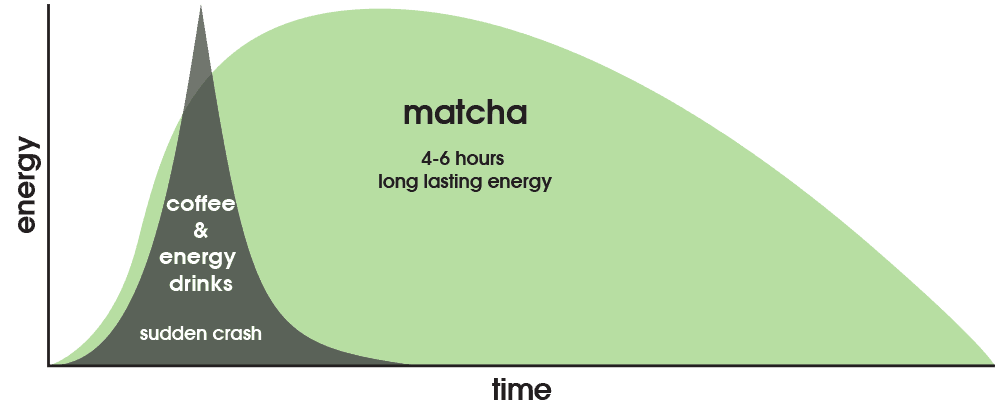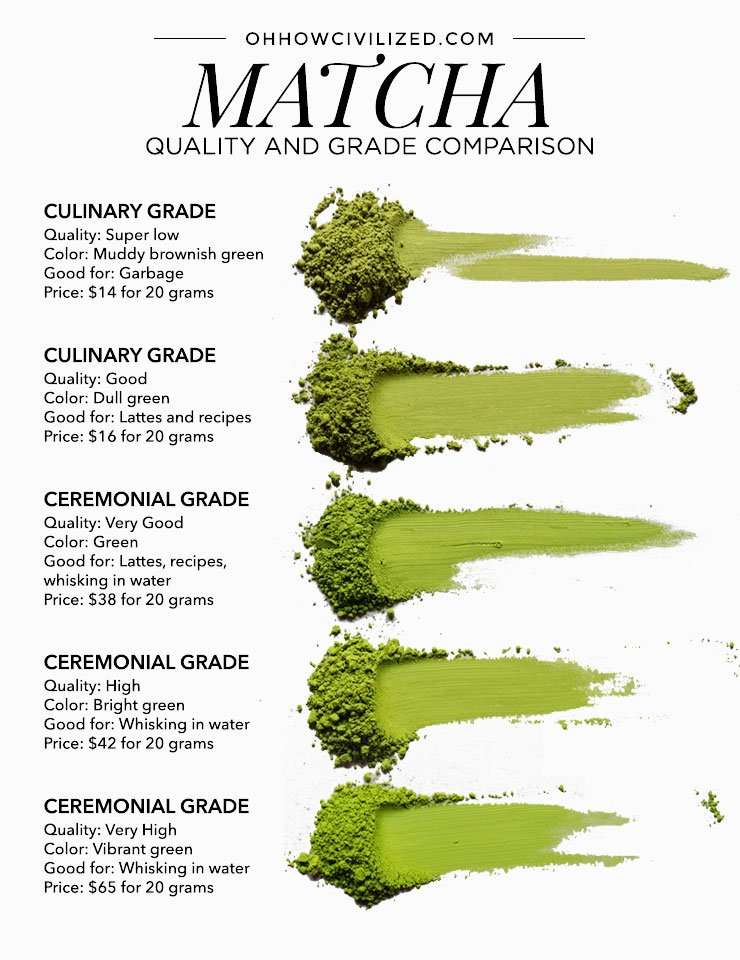Does Matcha Tea Have Too Much Caffeine
There is growing concern regarding Matcha tea being the perfect and healthy substitute for coffee.
And with Matcha tea matching a caffeine profile not far behind that of coffee, this concern is well-founded.
So many tend to ask if Matcha tea has too much caffeine sufficient to match the overly-caffeinated effects of coffee.
Is There Caffeine In Matcha
A common question I receive regarding matcha is, “Does matcha have caffeine in it?” It’s understandable. Many people are sensitive to caffeine and the crashes in energy levels it can cause, and are therefore curious about the caffeine content of matcha, or any other drink they’re looking to consume.The short answer is, “Yes it does.” Matcha has about 25-35 mg of caffeine in a 1 gram serving .
There are a lot of differences between the caffeine in matcha and that of coffee though.
Matcha Vs Other Energy Drinks
How does matcha;compare;to green tea, black tea or Red Bull? Green tea and black teas made from teabags that have between 30-50 mg of caffeine.
The caffeine in a can of Red Bull is about 80 mg, but that same can has 27 grams of sugar!;While this is another drink that gives you energy, expect the harsh crash soon after because of the killer combination of caffeine and plenty of sugar.
Read Also: How To Brew Essiac Tea
Which One Is Best Between Matcha And Coffee
Naturally, matcha green tea and coffee provide similar health benefits, the most important thing is based on your own preference.;
These two, matcha and coffee have minimal calories and a bitter taste that you could enjoy sipping.;
Coffee is known as an energy drink with higher caffeine content. Some individuals may receive negative side effects from drinking it such as getting anxiety, poor sleep at night, headache, stomach upset, and others. This happened due to genetics and liver lack of the ability to metabolize high caffeine amounts. Accordingly, matcha is the best for those who are sensitive to high caffeine.;;
Matcha Vs Coffee And Energy Drinks

A standard cup of coffee contains 96mg of caffeine and a shot of espresso contains 64mg.7 Energy drinks vary, but they’re usually more than coffee or around the same.
The biggest difference is the nutrients – coffee and energy drinks lack L-Theanine for a smooth, prepared energy boost. Energy drinks often contain a lot of sugar too. This leads to a bigger energy crash than you’d get with matcha.
For wellness, matcha wins hands-down even if the caffeine boost is slightly lower.
Also Check: Twisted Tea Calories Per Bottle
What Exactly Is L
L-theanine is an amino acid found in various green and black tea beverages.;
- During the shading process before the harvest causes the tea plant to increase amino acid production.;
- There is a larger than usual concentration of L-theanine in matcha.;
- You also consume the entire leaf when drinking matcha, so you get a larger amount of L-theanine compared to just drinking regular green tea.
A Short Analysis Of The Caffeine In Matcha Green Tea
Matcha tea contains about 25 mg of caffeine per teaspoon. This is about 1/3 of the caffeine in coffee. Coffee tends to make you nervous while Matcha tea leaves you relaxed and operational. The reason for this is that the caffeine content of Matcha is low enough to be well tolerated by most of these consumers. In addition, the caffeine in this powdered green tea is balanced by other good compounds that allow a slower release of it. So, you dont really get a brutal whiplash ephemeral with the Matcha as you can get it with coffee. In fact, the small amount of caffeine in matcha takes about 3 to 4 hours to be absorbed completely into the bloodstream! Because of this slow release, you feel fresh and rejuvenated for hours with just a cup of Matcha tea.
Here is a brief comparison of caffeine in matcha with other popular drinks:
- 1 teaspoon of Matcha has about 25-30 mg of caffeine.
- 1 cup of coffee infused about 150-200 mg of coffee.
- 1 cup green tea infused 35-70 mg of caffeine
- 1 cup of oolong tea infused has about 50-75mg of caffeine
- 1 cup of black tea infused with 60-90 mg of caffeine
- 1 can of Coca-Cola Classic contains 32 mg of caffeine
If you are concerned about the caffeine content of Matcha, you can change your brewing and the amount of powder you use in your recipes. If you like thicker tea with a smoothie-like texture, you can get between 25 and 120 mg of caffeine. On the other hand, a lighter matcha tea contains only 20 mg.
You May Like: What Ingredients Are In Long Island Iced Tea
How To Brew Matcha
- Use a small spoon to sift one to two teaspoons of Matcha into a 5 ounce drinking cup.
- Add water and whisk properly until it forty.
- Brew your matcha.
You can brew it as hot or as cold. Some people prefer to put the tea in the refrigerator for about 30 minutes before drinking so that it’s nice and cool.
Is There Less Caffeine In Different Types Of Matcha
Matcha is exceptionally versatile in its usage and caffeine content. For different uses, different grades of matcha are used. Organic culinary matcha, for example, can be used as;a flavoring;for cakes or as an ingredient for smoothies. This type of matcha contains less caffeine than ceremonial matcha. However, culinary matcha embodies bolder flavor tones compared to ceremonial grade matcha.
Ceremonial grade matcha can contain around 34 milligrams of caffeine per gram. This type of matcha is often chosen for everyday use. If youre just whipping up a quick batch of matcha, the ceremonial grade powder is much finer for easier dissolving in water. While it may be a less vibrant green than other matcha, it still has a sweet, pleasant taste for a morning smoothie or afternoon latte.;
Also Check: Where To Buy Chinese Dragon Tea
Best Organic Matcha Powder Review
What is the BEST organic matcha powder? In this post I share my review of 14 top brands.
There are SO many organic matcha powders on the market these days. Which is wonderful, but it can make it difficult to determine which one is the best to buy.
Ive taken the guesswork out of it for you with this review.
I purchased 14 different green tea powders and put them through several different tests to determine which ones were high-quality and worthy to recommend.
Recommended Reading: How Fit Tea Works
Will Matcha Keep Me Awake
But its important to remember: matcha contains a stimulant in the form of caffeine. Although the stimulant effects seem to be reduced in matcha, thanks to the presence of L-theanine, they dont disappear. Its a smart, sleep-friendly strategy to use matcha thoughtfully, in moderation, and at the right times.
Also Check: Premade Long Island Iced Tea Brands
Caffeine In Matcha Vs Green Tea
You may also have noticed that a cup of regular green tea has 35mg of caffeine, this is lower than that of both matcha and coffee. The caffeine content in matcha is about double that of regular green tea. This is because you ingest the entire leaf when consuming matcha. Most teas are only infused with hot water. Would we recommend matcha over green tea too? The answer is yes.
Again, the quality of caffeine in matcha is quite different because green tea has much lower levels of L-theanine. L-theanine is quite unique to matcha as it is formed when the tea plant is deprived of sunlight. For matcha, this occurs in the final few weeks before harvest when;the tea plants are kept shaded under a canopy.;
This completely changes the amino acid profile of the tea plant and results in a higher concentration of L-theanine. Regular green tea is not shaded before harvest and will not have the same levels of L-theanine. The caffeine boost from green tea will likely not last as long nor be as effective.;For more information, you may wish to read our explanation on the key differences between matcha and green tea.
What Makes The Caffeine In Matcha Better Than Other Teas And Coffees

Very good question.
All teas belong to the plant Camellia Sinensis. White, green, black and oolong teas all contain caffeine, which is one of the building blocks of the plantS DNA.
In the case of Matcha, the minimum caffeine content acts in synergy with its phytonutrients, catechins, antioxidants and amino acids for a slower release since the caffeine molecules bind to these nutrients. The result: instead of feeling instantly awake or overly nervous as you are with a coffee, you feel more energetic, concentrated and longer refreshed with Matcha. Your body gets the fuel it needs for the next few hours so that your brain can fully concentrate on the task at hand. Thus, Matcha green tea gives you the energy to work for several hours without experiencing an accident or excessive fatigue that is so characteristic of coffee. With Matcha, you will not feel any dependence on caffeine as the slow release does not cause a peak in insulin levels unlike coffee.
Note: the caffeine of matcha tea acts on the body differently than that present in coffee
The caffeine in coffee is like cold water splashing on your body on the coldest days of winter, it hits you with a dry snap and instantly wakes you followed by trembling. The caffeine in Matcha green tea is like meditation . You relax completely while remaining perfectly awake and conscious. Your mind and body are ready to face the world!
Recommended Reading: Montebello Long Island Iced Tea Alcohol Content
Matcha Vs Coffee: Whats The Difference
If youve scrolled through Instagram, read any popular health articles, or watched any health and fitness YouTube gurus recently, youve probably seen a lot of matcha tea. Its a trending superfood for not just drinking but also as an ingredient in baked goods, breakfasts, and more! You may have even heard the claim that matcha is the ultimate coffee replacement.
Its not just your feed matcha has recently been receiving a lot of good press because of its amazing health benefits, versatility, and its ability to do everything coffee can and more. Its green color and unique taste also help it to stand out from the crowd, especially in beautiful pictures of matcha lattes and matcha ice cream .
With all this talk and news, you may be curious to separate fact from fiction. Whether you havent tried matcha before or have started your own matcha fan club, the question we all want answered is: what is the difference between matcha and coffee anyway? And, is one really better than the other?
Coffee, with its hot, comforting, and bitterly-caffeinated taste, has been a classic pick-me-up for decades, but can it retain its crown as king of morning beverages with matcha tea gaining popularity fast?
While we still enjoy a cup of coffee every once in a while, we think that coffee cant beat the benefits of drinking matcha!
If youre curious to learn more, read on!
Matcha Tea Leaves
However, preparing your morning matcha is actually much quicker than making your cup of coffee!
Exactly How Much Caffeine Is In Matcha
The amount of caffeine in coffee beverages are usually premised on the type of beverage. Because matcha is made from ground tea leaves, you essentially ingest the entire tea leaf when you drink any matcha-based beverage. Therefore, how much matcha powder you use will determine the caffeine content in matcha.
A single teaspoon of matcha contains about 70mg of caffeine, and will make slightly more than a cup of matcha tea. Based on the table below, you will notice that the caffeine content in matcha is very much comparable to that of coffee.
The lower dosage of caffeine in matcha also helps prevent the coffee jitters that many coffee drinkers have experienced. Unlike coffee, matcha is also much gentler on the stomach. If youre sensitive to caffeine but need a perk-me-up, you can depend on matcha for energy boost.
You May Like: How Many Shots Are In A Long Island Iced Tea
Matcha Effects On The Body
If you drink a cup of coffee, you will boost the energy levels soon after drinking it. Caffeine in green tea powder has a different effect on the human body than coffee.
It will provide you energy even 36 hours after drinking a cup of this powerful drink.
As we mentioned earlier, L-theanine increases the effect on the caffeine in matcha. There is 2.41mg of L-theanine in 100mg of the green powder.
This is 5 times more of this component than in green or black tea. It increases creativity, memory, and ability to learn.
How Do You Make Matcha Tea
Matcha powder and hot water should be whisked together. Its recommended that you use a tea strainer to sift the matcha into a bowl to avoid clumps. Then, add warm water and whisk it. The whisking creates a foamy tea that can be poured into your cup. Some people add the powder to other hot liquids, like milk, to make a bright green latte. Heres a video of how to make traditional matcha tea.
Cheadle says she brings powders with her so she can shake it into a drink like water or a smoothie. It can also be added to other foods, like breads and pastries, for its color and flavor.
Recommended Reading: Does Twisted Tea Have Beer In It
Does Matcha Contain More Caffeine Than Coffee
This is a;tricky question to answer.
Tea leaves typically have more caffeine in them per leaf than coffee beans. But we usually have to use more coffee beans for a cup of coffee which is why a cup of coffee has more caffeine than a cup of tea.
There are various other factors that affect the amount of caffeine from one cup to the next, such as:
- the temperature of the water
- the quantity of tea or coffee used
- how long the tea or coffee is brewed for
- the type of tea leaves or coffee beans used
As a rough guide though, a regular cup of matcha contains around 70mg of caffeine whereas a regular cup of coffee contains anywhere from 100-200mg of caffeine.
Even if you arent particularly sensitive to caffeine, its best to limit yourself to three or four cups of matcha a day. The NHS in the United Kingdom recommends consuming no more than 400mg of caffeine a day .
At the end of the day though, you should listen to your body if youre ever unsure how much caffeine youve had. Youll know whether you feel the need for more or less and can adjust your intake accordingly.
How Does Matcha Compare To Coffee
Instant Coffee which coffee grounds are freeze-dried and prepared for later rehydration in hot water, contains about 60mg of caffeine per teaspoon.
Filtered Coffee Coffee poured through a filter generally contains more caffeine and averages about 100mg of caffeine per serving.
Espresso A small serving of espresso comes in around 80mg of caffeine.
Black Tea Black tea leaves, which are used for brewing many kinds of tea around the world, averages about 60mg of caffeine per serving.
Coca Cola A can of Coke has about 45mg of caffeine per serving.
Read Also: How To Make Kava Tea
Amount Of Caffeine In Both Drinks
The leaves of the plant have 5-6% of caffeine amount, but what about a cup of matcha tea?
All types of green tea contain it, and it is especially concentrated in this drink. It contains 5 times more of the substance than coffee, and in combination with L-theanine, its effect is even greater.
If we are more precise, one cup of matcha contains 70mg of caffeine, meanwhile, a cup of coffee has 163mg of the substance.
This is one fact but you should also know the difference between its effect on the body.
Matcha Is A Special Form Of Green Tea

Matcha literally means “powdered tea.” When you order traditional green tea, components from the leaves get infused into the hot water, then the leaves are discarded. With matcha, youre drinking the actual leaves, which have been finely powdered and made into a solution, traditionally by mixing about a teaspoon of matcha powder with a third cup of hot water , which is then whisked with a bamboo brush until it froths.
Unlike traditional green tea, matcha preparation involves covering the tea plants with shade cloths before theyre harvested. This triggers the growth of leaves with better flavor and texture. The leaves are hand selected, steamed briefly to stop fermentation, then dried and aged in cold storage, which deepens the flavor. The dried leaves are then stone-ground into a fine powder.
RELATED: 4 Ways to Cook With Matcha That Are Seriously Delicious
You May Like: How To Make Best Long Island Iced Tea
Amount Of Caffeine In Matcha
Matcha tea is the ceremonial green tea in Japanese traditions and has been consumed by Buddhist monks for centuries as a meditation drink.
Matcha is a fine powder of ground whole unoxidised tea leaves and is characterised by a bright green colour, sweet taste and a creamy feel.
In 1 gram of matcha powder there are 35mg of caffeine and matcha green tea is usually prepared with 1 to 2 teaspoons of powder gently whisked in a 230ml cup of hot water.
With a bit of math we can see that the caffeine content ranges from 30mg to 60mg in 100 ml of prepared tea, which means an average of 105mg per serving.
A cup of matcha tea has more caffeine than espresso and soluble coffee, but less than brewed coffee.